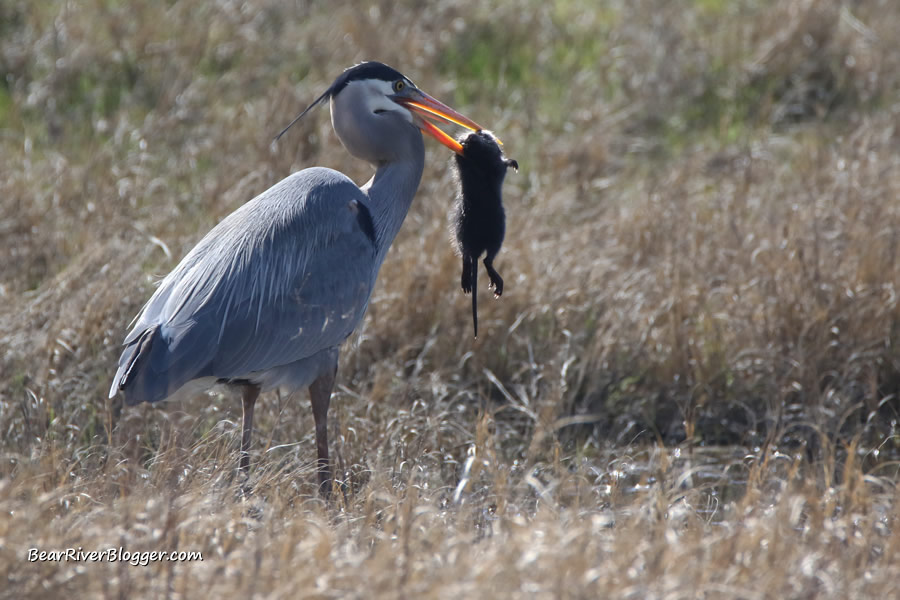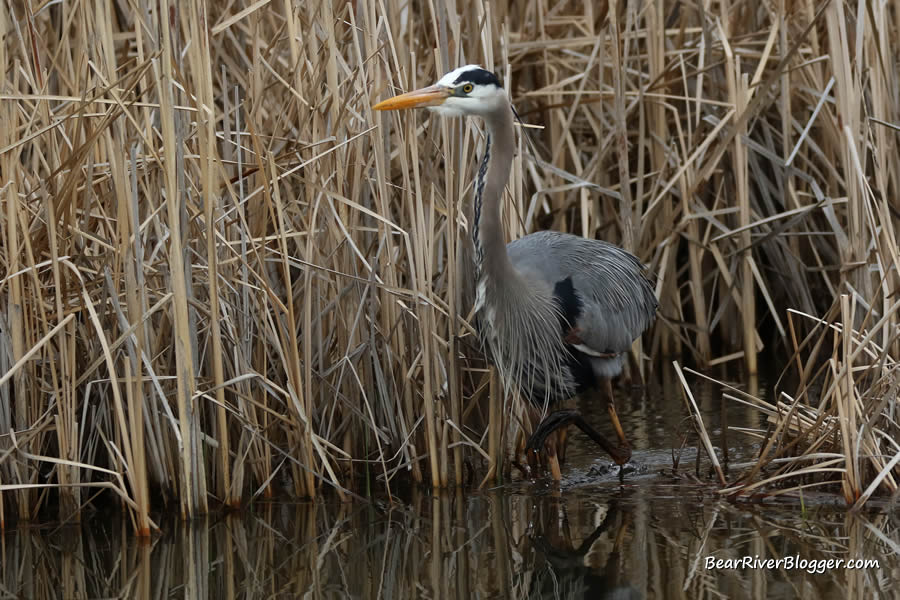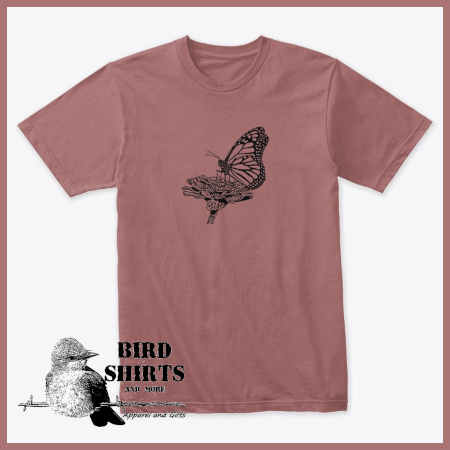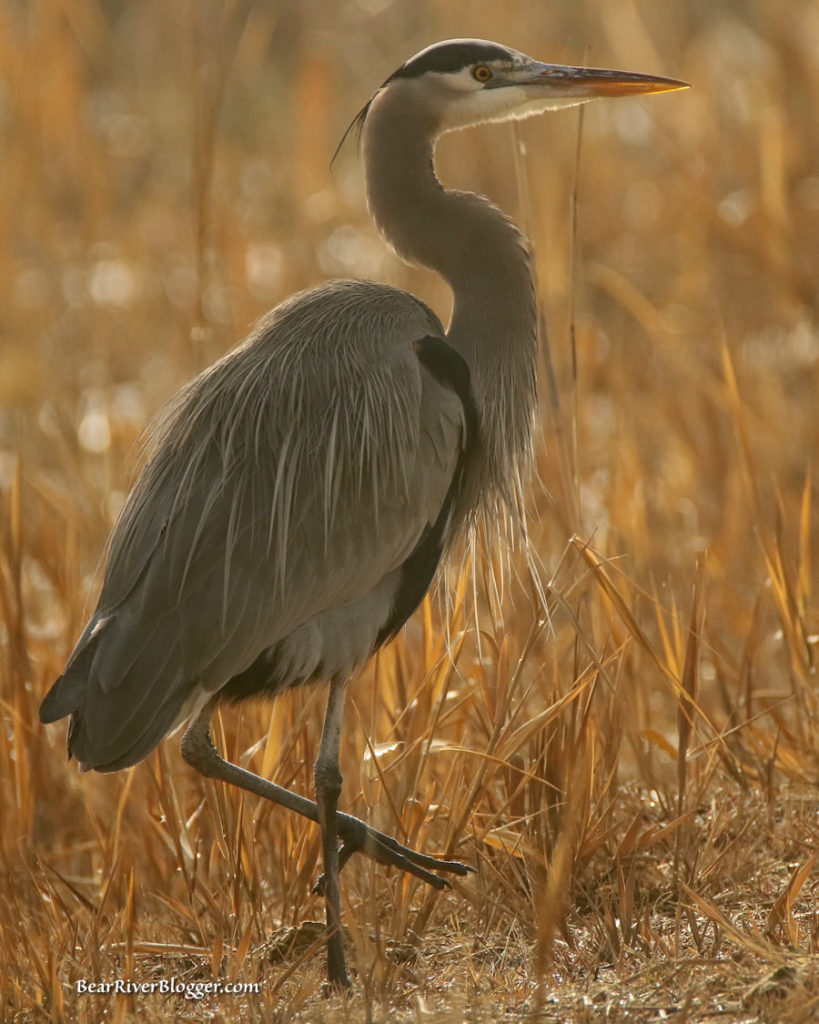One of the most enjoyable parts of birdwatching I personally have found from several decades of watching and enjoying birds is learning something new about our feathered friends.
And that enjoyment is certainly multiplied many times over when I can capture that newly found knowledge with my camera.
Yesterday, as luck would have it, I was able to not only learn something new about what great blue herons eat but I was fortunate to document it with my camera as well.
On this late afternoon birdwatching trip to Farmington Bay, I came across a great blue heron hunting the shallow waters near the asphalt roadway just inside the main entrance.
And as always when I find a great blue heron stalking the shallow wetlands, I quickly stopped the car and grabbed my camera for a photo or two because you can never have enough great blue heron pictures, right?
I’m glad I did because what I happened to come across when I focused my camera on the heron was a most unusual and fairly sizable prey tightly held in its beak, a large muskrat.
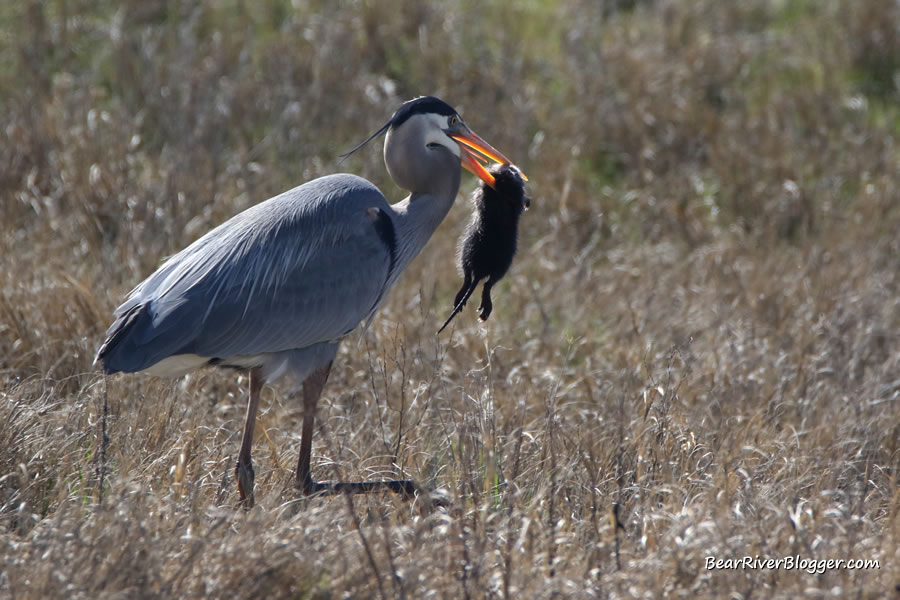
Great blue herons are mainly fish eaters but they will also eat a variety of other creatures when needed, including snakes, turtles, insects, frogs, small birds, and rodents (including muskrats) when the opportunity presents itself.
This wide variety of potential prey is one adaptation that allows the great blue heron to stay further north during winter than other herons and fish-eating birds.
And it’s why here in Utah many great blue herons don’t migrate south during even the coldest of winters but rather meander up and down the Great Salt Lake wetlands during that time of year in search of other food sources.
I knew great blue herons ate rodents as one winter a few years back I photographed a great blue heron as it took a vole on the roadway at Farmington Bay but I never considered, until now that is, that they would eat a rodent as big as a muskrat, especially since great blue herons swallow their prey whole.
After this great blue heron captured and subdued the muskrat, the large bird flew off with its meal to a distant location to eat it in peace.
When people ask me after all these years of birdwatching why I never get bored, this blog post is the reason why.
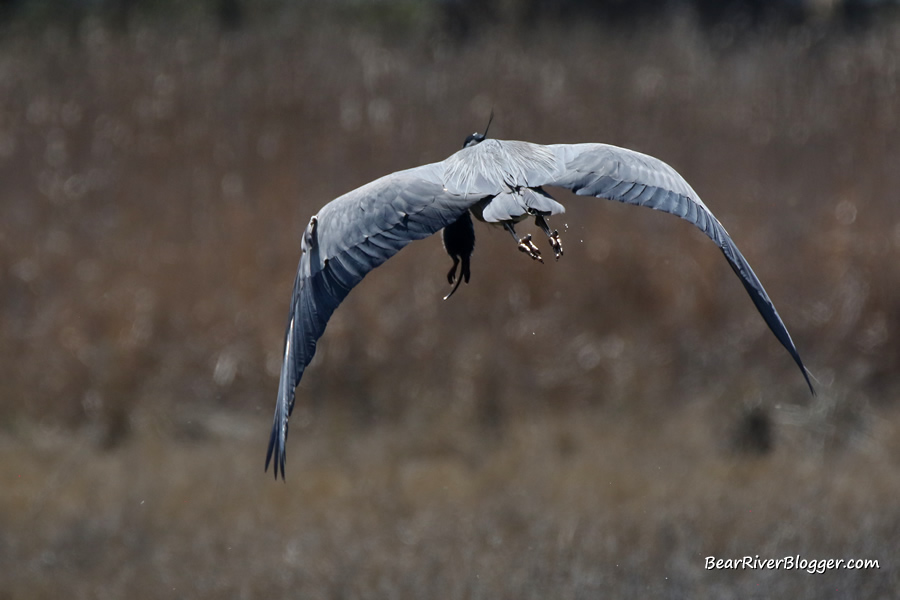
There is always something new to observe and learn while watching birds no matter how many years you’ve been a birder.
And it’s even more exciting to try and capture such moments with a camera so I don’t see an end to my passion for birds and nature photography anytime soon, if ever as a matter of fact.
Moments like yesterday, when I learned something new about the great blue heron’s diet, are what keep me coming back time and time again, even when I think I’ve “seen it all”.
If you are like me, one who loves to learn about birds and nature, I offer you to head on over to our subscribe page and sign up for email notifications for future blog posts.
I appreciate your readership and support for this website and I thank all who not only follow our blog but take the time to share their favorite posts on their social media outlets as well, helping this website to continue to grow.
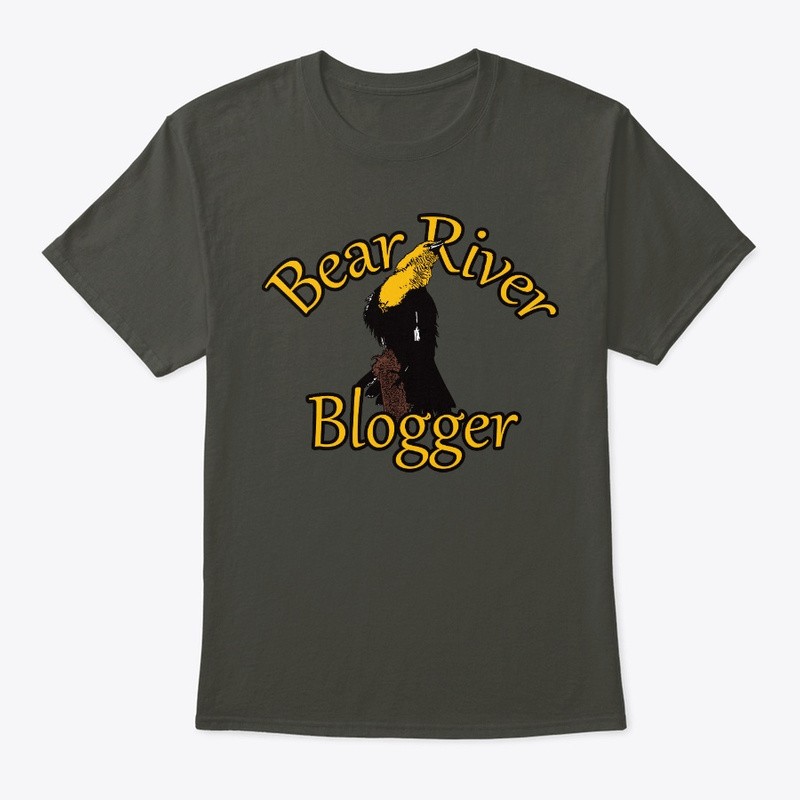
(Great Blue Heron vs. Great Egret. For short nature clips like this one and interesting stories about the natural world around us, check out our Bear River Blogger channel on YouTube for videos and updates from our travels while out in nature.)
